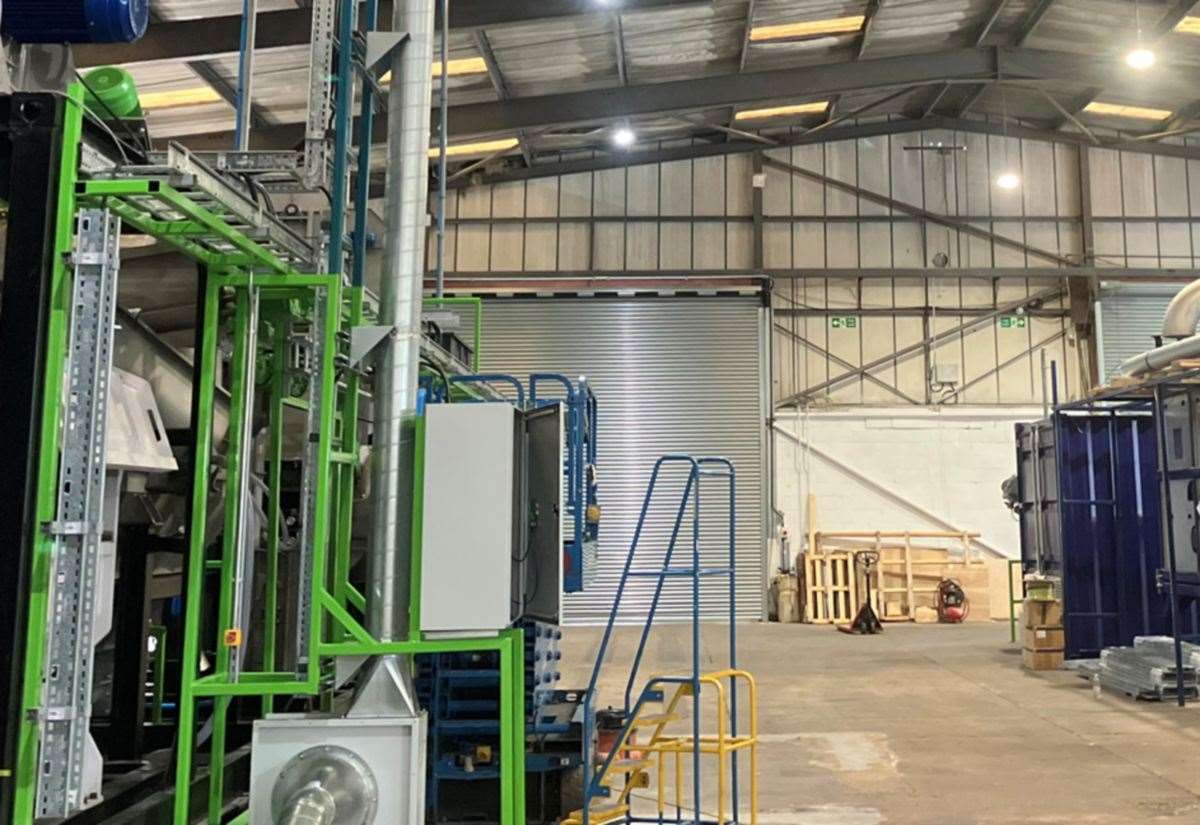A company that is cleaning up the planet by finding a way to reuse plastic waste has taken a major step forward.
QM Recycled Energy (QMRE) has been granted a small waste incinerator permit (SWIP), which means it can now start processing plastic waste at its 25,000 sq ft HQ complex on the Kingsnorth Industrial Estate at Hoo, near Rochester.
Inside the QMRE plant at Hoo
The firm’s CEO Tim StClair-Pearce called it a “momentous landmark”, although he explained: “We are not actually incinerating anything.
“The plastic waste is heated up in a thermal kettle in the absence of oxygen, before breaking down the hydrocarbon chains.
“Still this pyrolysis operation required a SWIP from the local authority before commercial operations could begin.
“This is the first step in what is going to be a national network of plastic waste-2-oil systems, which will help transform plastic waste into an oil, which, with further processing, can be turned back into new and renewable plastic.”
The Hoo facility is initially running two of the systems – known as VIXLAS – which will process up to 10 tonnes of plastic waste per day.
Company CEO Tim StClair-Pearce called it a “momentous landmark”
These will be augmented with an additional two systems at a later date.
When fully operational, the company aims to have a national network of 100 sites, each with four VIXLAS, processing 550-600,000 tonnes of plastic waste, which will be recycled each year.
That could account for 10% of all the UK’s plastic waste.
The company’s technology uses a pyrolysis-based process to produce oil from end-of-life plastics.
The system creates QUEL, a pyro-oil, which can then be refined back into new plastics.
The process is expected to achieve an 85% oil yield, with the remaining 12% comprising non-condensable gas, used internally to power the system, and around 3% carbon, which can be utilised in construction products.
Plastic waste is first shredded before being thermally processed in the absence of oxygen, breaking down hydrocarbon chains into oil vapour, which is then condensed into liquid form.
The company said the modular design allows the systems to be deployed in a wide range of settings, from supermarkets and retail parks to industrial estates, public events and local authority recycling centres.
The firm began as a start-up in 2020 with a small testing facility at Longfield, near Dartford, before moving to Hoo in October last year.
It now expects to employ 21 people at the plant as it moves to round-the-clock shifts.

